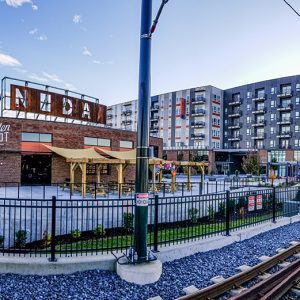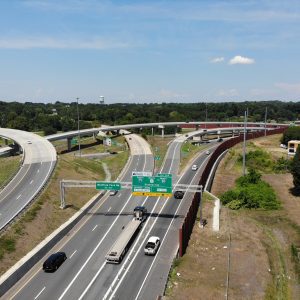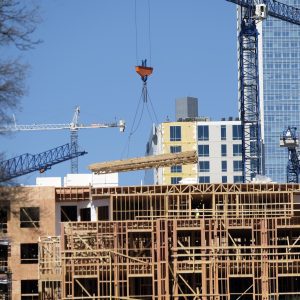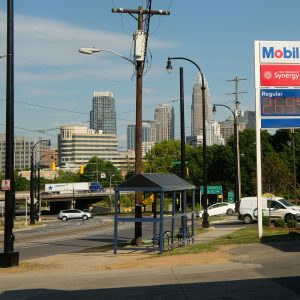ECONOMIC DEVELOPMENT

Building a more responsive, connected transit system
This project is part of the third cohort of Gambrell Faculty Fellows. Read about the fellows progam and other projects here. In a fast-growing, automobile-centric city like Charlotte, it’s tough to get around without a car. That’s why Dr. Mona Azarbayjani and Dr. Hamed Tabkhivayghan, professors in the College of Arts + Architecture and William […]

Part 1: How the Blue Line Extension changed Charlotte development
The pandemic has transformed so much about the world, including how we work, where we work, and how we commute. As a result of these shifts, Charlotte area transit use has fallen to less than 50% of pre-pandemic levels. And while debates continue on whether these effects are permanent or temporary, city planners are pushing […]

Mapping Charlotte’s future: What are place types?
There are, broadly, two big worlds that overlap in the planning and development realm: The dirty, hands-on physical world of building and construction, and the wonky, alphabet-soup-of-jargon world of zoning, regulation and land use policy. Right now, Charlotte’s in the heat of the wonky phase. Although it’s drawn far less attention than the contentious debate […]

Watch: Housing, urban renewal and equity in Charlotte
Decades of housing policy, from redlining to legal segregation to “urban renewal,” have left Charlotte a deeply unequal city, contributing to a large racial wealth gap and vastly different rates of homeownership between residents of different races. On Aug. 24, UNC Charlotte Urban Institute researcher Angelique Gaines and assistant director Ely Portillo joined local experts […]

Here and gone: When major buildings don’t even make it to middle age
Charlotte is a city that’s often criticized for tearing down its history. But some of the most significant demolitions of the past few decades haven’t been historic structures, but rather buildings that didn’t make it to middle age — or even puberty. In a fast-growing city, plenty of change is to be expected. The built […]

Join us for a virtual panel about health disparities in Charlotte
Health influences everything from a person’s ability to work to medical debt, and health inequalities have big consequences in our community on economic mobility and people’s ability to get ahead. Yet the burden of poor health is not evenly spread, because of food deserts, lack of access to insurance, pharmacies and doctors, and the embedded […]

Building Charlotte’s future (literally) with the construction industry
Charlotte’s growth rests, in the end, on the people who actually build our city: The construction industry. In this episode of the “Future Charlotte” podcast, general contractor Myers & Chapman CEO Marcus Rabun talks about the near-term challenges facing the industry such as covid-19, material and labor shortages. Rabun also discusses what might be an […]

A regional transit plan takes shape, but questions remain
Charlotte-area leaders released their preliminary recommendations Thursday for how to build the region’s first unified transit system, but they’ll keep wrestling with what could be the thorniest issue: How to pay for it. The Connect Beyond initiative, a joint project between the Charlotte Area Transit System and the Centralina Regional Council, is recommending a comprehensive, […]

Three-day work weeks, vacant offices, shuttered storefronts. Is the upcoming Center City 2040 Vision Plan ready for that?
“The key to its success will be for residents and leaders to dare to dream big ,” Chris Beynon, Center City Vision Plan team leader, MIG consultants, Charlotte Business Journal, August 9, 2019. “We will see our major employers on a timeline to restore the use of office space. It depends on the workforce coming […]

Supporting Charlotte’s minority-owned small businesses
A study released this week by the UNC Charlotte Urban Institute sheds light on the unique challenges minority-owned small businesses face and how the Charlotte-Mecklenburg community can better support these enterprises, which are key to community well-being and wealth-building. Defined as businesses with fewer than 500 employees, small businesses comprise 99.9% of all businesses. Small […]